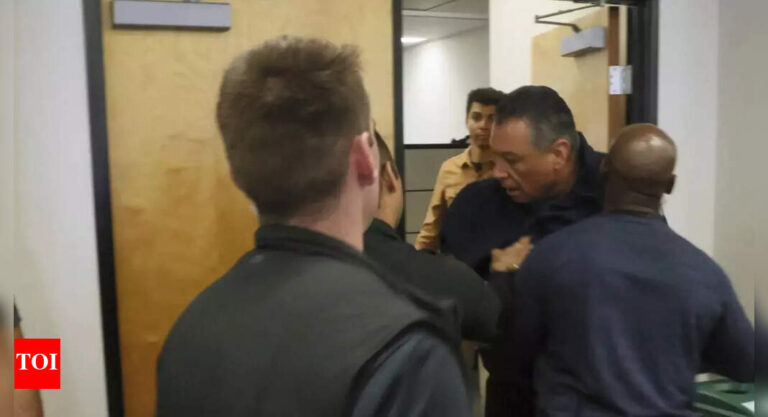Controversy Erupts Over HIT 3’s Tamil Dialogue: Telugu Audiences Outraged by Derogatory Term
HIT: The Third Case Sparks Controversy with Dubbed Dialogue on Netflix
The much-anticipated Telugu crime thriller HIT: The Third Case (HIT 3), starring Natural Star Nani, is now streaming on Netflix across multiple languages. Directed by Sailesh Kolanu, the film has garnered significant attention not only for its gripping storyline but also for a controversy that has arisen from its dubbed version. Despite receiving acclaim for its plot and performances, the film’s OTT debut took an unexpected turn with a dialogue that stirred up emotions among viewers, particularly in the Tamil version.
The Plot and Star Cast
HIT 3 follows the intricate narrative of a police officer navigating through a web of crime and mystery. With Srinidhi Shetty playing the female lead alongside Nani, the film’s engaging storyline and compelling performances have been well-received. The production team, led by both Nani and Prashanti Tipirneni, along with music by Mickey J Meyer, has crafted a gripping tale that resonates with crime thriller enthusiasts.
As is often the case with regional films crossing linguistic boundaries, HIT 3 has been dubbed into multiple languages, including Tamil. However, it is the Tamil version of the film that has recently ignited a fierce debate among audiences.
The Controversial Dialogue
In the Tamil dubbed version, a specific dialogue delivered by actor Karthi toward the film’s climax has raised eyebrows. The line, where Karthi asserts, “Do you think I don’t know Telugu? I am bilingual," seems innocuous and impactful within the context of the film. However, the Tamil version includes the term "Golti," which carries derogatory connotations towards Telugu-speaking individuals.
For many viewers, particularly those from the Telugu-speaking community, the use of this term was entirely inappropriate and deeply offensive. The outrage has since taken to social media, with numerous clips from the scene going viral, prompting a wave of responses condemning the choice of language.
Reactions and Backlash
The incident has resulted in a significant backlash, both online and offline. Telugu audiences have expressed their discontent, questioning how such language could be approved for a film that aims to captivate a diverse demographic.
Here are some of the key reactions:
- Social Media Uproar: Twitter and Instagram have seen a flurry of posts expressing anger over the dialogue, with users calling for accountability from the filmmakers.
- Cultural Sensitivity Debate: The situation has prompted discussions about cultural sensitivity in dubbing. Many viewers argue that the use of a derogatory term undermines the effort to create inclusive content.
- Calls for Apology: Audiences are urging the filmmakers and Netflix to acknowledge the mistake and issue an official apology for the hurt caused.
What’s Next for the Team?
As the controversy unfolds, all eyes are now on director Sailesh Kolanu and his team. Here are some potential actions they could consider:
- Public Statement: Issuing an apology directly addressing the concerns would be a step towards mending relations with the audience.
- Revisions in Future Dubs: Ensuring that future dubs of the film are carefully reviewed for language appropriateness can help avoid similar pitfalls.
- Creating Awareness: Engaging in discussions about linguistic diversity and sensitivity can foster a better understanding between different cultural groups.
For now, the film continues to attract viewers who are both eager to watch the thriller and those tuning in to witness the fallout from the controversy.
Conclusion
HIT: The Third Case has been a whirlwind experience for its creators, showcasing the highs of cinematic storytelling while also exposing the often-volatile landscape of cross-cultural communication in film. As viewers continue to react and discuss the implications of the controversial dialogue, the film stands at a crossroads—its success clouded by the fallout of a single word.
As the narrative around HIT 3 evolves, it serves as a reminder of the need for filmmakers to be mindful of the language they choose, especially when bridging cultural divides. The film industry is rife with potential for powerful storytelling, but as events like these demonstrate, it is equally essential to navigate the sensitivities of our diverse audiences with respect and awareness.
Stay tuned for further developments on this story and other updates in the world of cinema!






